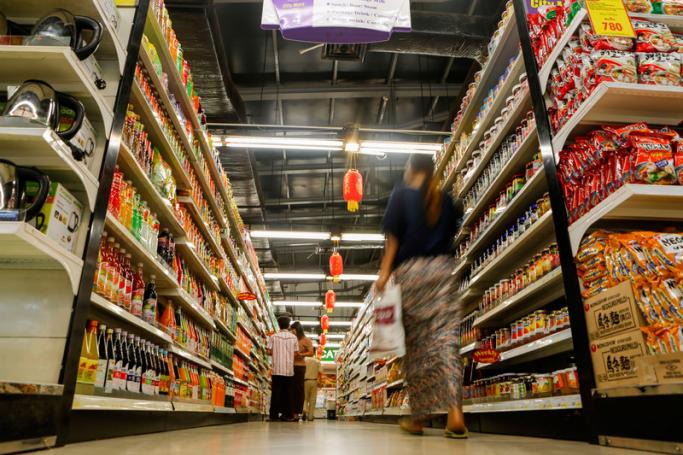COVID-19 has adversely affected the overall economy and the private sector businesses in Myanmar and the response from the government has been swift with various packages for recovery both from the supply as well as the demand side. However, a recent telephonic survey during end Apr-early May, among over 750 private businesses (food and beverages, manufacturing, accommodation, wholesale and retail trade, transport and storage) by The Asia Foundation point out that “most businesses were not aware of the government support programmes for the enterprises impacted by COVID-19”. This implies that more intense efforts at awareness-raising may be required. The private sector is taking steps in terms of protecting the workers and customers through measures of social distancing and sanitation practices and there is an overwhelming satisfaction on the preventive steps taken by the union government as well state/regional governments.
Myanmar Business Environment Index (MBEI) survey points out that about 29% of the 750 enterprises surveyed have been completely closed at the time of the survey. A majority of them have been closed in Apr’20. About half of them have reduced their operations considerably. Employees safety and lack of demand are the prime reasons for the closure of business establishments. It is interesting to note that restrictions of movement within and across townships are the prime reason for slack in demand for many business establishments. Also, a majority of them have voluntarily initiated preventive and safety measures before the government announced them.
There has been over 50 per cent reduction in sales during the period, reported by a large number of enterprises. So also a decline in profitability. Sectors that depend on external demand, like garments, transport and hospitality have reported a high risk of survival. Travel restrictions have affected demand for accommodation, food and beverage and manufacturing enterprises. About three-fourths of the enterprises have reported reduced revenues and loss of profitability over this period. There were cash flow problems for many businesses. About half of the businesses felt they would be in the range of moderate to high risk in terms of their survival due to this. There were job losses too with businesses reporting on average lay off of 16% of their staff during this period. Among them, an overwhelming majority, up to 84% are manual workers in transport and storage, food and beverage serving activities, and in manufacturing units. This reflects the need for ensuring social support for this section of workers who would have a low resource base in terms of coping mechanisms. Government’s support for such groups becomes all the more critical at this juncture.
There, of course, is some silver lining, with microfinance playing a critical role in financing enterprises, with an increase in the loan off-take. This is an important insight as this would enable the financial sector players to fine-tune the business models in terms of flexibility in loan products and tailor-made products to ward off adverse effects of COVID-19 on business establishments. It is interesting to notice that agreement on the rescheduling of loans is reported by about 82% of the respondents. It is found that on average an estimated MMK 18 million additional cash flow is required per business in order to survive until Sept 2020.
Other features that work positively for Myanmar businesses is that many small units have their land and space which would mean they do not incur rental costs and other incidentals when they resume the businesses. The survey also found that degradation of services was not seen in basic utilities like electricity, water and telephone (and internet) services during the past two months.
While Government has announced Covid-19 Economic Recovery Plan to support the businesses through deferral of payments to the government of income tax, commercial tax; exemption of advance income tax on exports; emergency loan scheme SMEs, very few businesses appear to be aware of support schemes as they are not aware of them. There is a need for engaging industry associations in creating awareness so that these schemes can be used effectively. At the same time, there is a need also for addressing the situation of small and tiny units who do not fit into the criteria for availing support from the government or financial institutions.
Survey results reflect the need for government to have a more granular understanding of the situation for the private sector, especially business establishments which are in the category of SMEs, tiny family units and identify their specific needs. Strategies need to be tailor-made to meet their needs. Banks and financial institutions need to design specific products that would cater to the needs of the tiny units. Similarly, job losses reflect the vulnerability of the workers as well as employers when they face a crisis. Most of the workers who have lost jobs are at the lower rung and would have fewer means to cope with the shocks in terms of family support and social networks. There is a need for extending social security measures for the tiny units so that workers are protected to some extent. Incomes support schemes for retrenched workers can be devised by the government so that they can be supported for a certain period.
In summary, this survey findings provide significant insights on how the pandemic has impacted the businesses in the short run and what is in store for the medium to long term. The recovery plan of the government may require fine-tuning and mid-course correction in order to be effective in meeting the needs of the private enterprises so that it can be back on the track and contribute to the economy.












